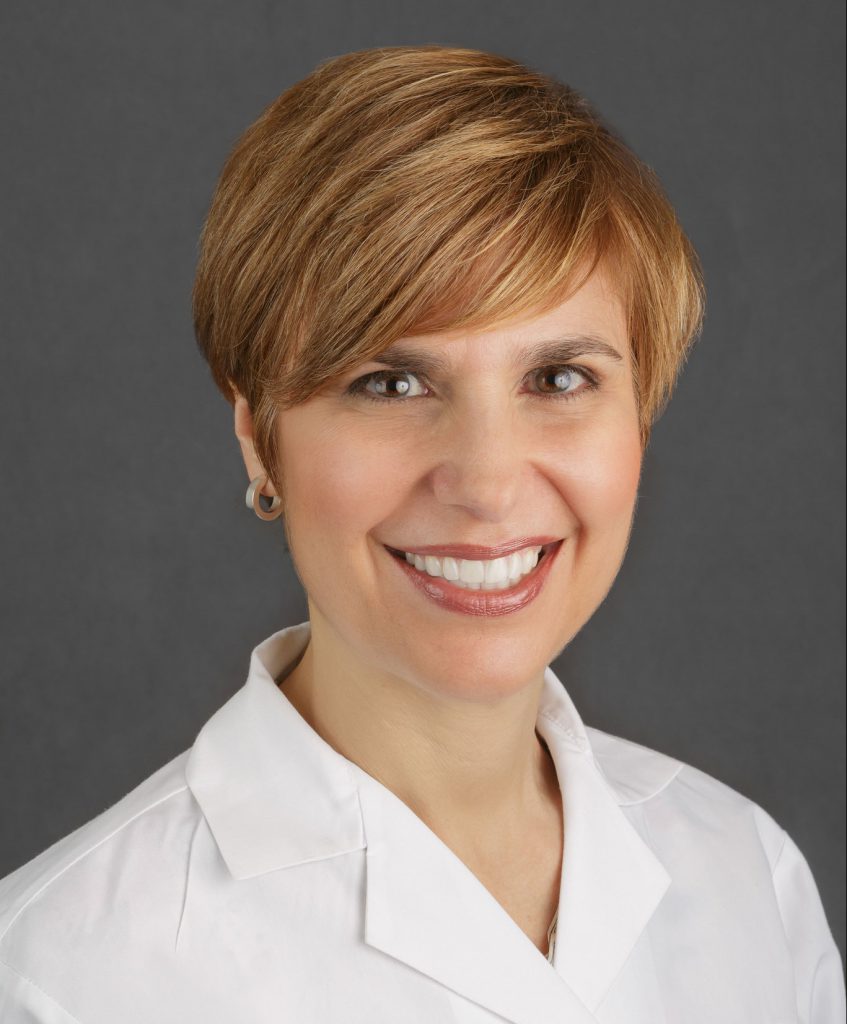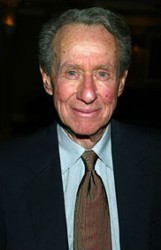Sirens blare as patients are rushed in on gurneys into the overflowing emergency room in New York-Presbyterian Allen Hospital. Medical staff are running erratically about the ward attending to patients on ventilators and those who are struggling to get air into their damaged and infected lungs. The hospital is gripped by a feeling of panic, fear, and confusion by both patients and medical staff, a scene described as Armageddon.1 It is among this throng of dying patients and overworked and exhausted medical staff we find Dr. Lorna Breen, a woman who is described as kind and soft spoken by people who knew her, commanding her emergency room with the authority and confidence of a general during a time of war. As the medical director of the emergency department, this was her war against an enemy, a virus, she did not fully understand that left many of its victims dying or dead. Dr. Breen’s battlefield was at the New York-Presbyterian Allen Hospital, a New York City hospital (New York), during the height of the pandemic, where nearly 45,000 people were hospitalized and over 19,000 confirmed deaths from the novel Corona virus, COVID-19.2 During this time doctors frequently worked 12 hour shifts without stopping, all while Personal Protective Equipment (PPE) were dwindling. While Dr. Breen bravely commanded her staff, she was burdened by the stress and sadness of her suffering and dying patients; this was the feeling shared by many medical staff who worked during the crisis. Although some people did survive the disease, the social and financial impact is staggering: unemployment, anxiety, isolation, and lasting health problems that will forever change the way they live their lives. During this time of chaos and confusion, where hospitals were overflowing with patients and a hospital full of panicked patients and doctors alike, Dr. Breen was a beacon of hope and a hero, but that all changed when she herself, contracted COVID-19.
“You’d come into a shift in the morning, and the E.R. could be in chaos,” said Dr. Gino A. Farina, director of the emergency medicine residency program at the time. “Everybody looked exhausted, their hair was a mess, and they looked like they were destroyed. And she looked like she was ready to start a shift.”3
The damage, loss, and impact of the COVID-19 pandemic is widespread, intense and ongoing. COVID-19 is a highly infectious disease which is a type of severe acute respiratory syndrome (SARS). The virus causes fatigue, shortness of breath, joint pain, heart complications/failure, long-term breathing problems, strokes, risk of of Parkinson’s disease, weakened blood vessels, and Post Traumatic Stress Disorder (PTSD), a psychiatric disorder that can occur in people who have experienced or witnessed a traumatic event, and many others.4 The effects of the virus are not limited to the body, but has social, economic and global impact. The UN World Economic Situation and Prospects estimates the pandemic will cost the global economy an estimated 8.5 trillion dollars over the next two years.5 The estimated social cost to the individual is stated to be roughly $55,000 in lost wages, loss of benefits, cost of safety equipment, etc.6 This means that even if a person is not infected by COVID-19, it is likely that they have suffered financially and, because of quarantine and isolation, they have likely suffered psychologically. While new studies are still under way current studies show that COVID-19 can often be connected with depression, anxiety, and general distress.7

In March of 2019, Dr. Breen began suffering from COVID-19 symptoms, she had no energy despite sleeping for 14 hours at a time, even menial chores like unloading the dishwasher left her exhausted and out of breath; so she quarantined herself with the hospital’s approval. Dr. Lorna Breen, eventually recovered from COVID-19, and after a week and a half of recuperation, went back to work at the hospital, determined to once again lead her army and fight the war against the virus. However, things had changed for Dr. Breen, who was once able to work long hours, her body could no longer keep up with the 12 hour shifts. She worked herself to exhaustion at times not sleeping for 5-7 days and at one point covered two emergency rooms simultaneously that were 5 miles apart.8 The hospital recognized that her work was having a negative impact on her well being, which could eventually lead to a mistake or problem with a patient, and so the hospital sent her home. Whether it was the fact that Dr. Breen went back to work too soon or because the hospital sent her home that made her feel broken is unclear; what is known is that this possible combination began a domino effect on her mental health. She had no history of mental illness, but the never ending stream of deaths at work in her role as the ER director at the hospital took its toll. Dr. Breen’s family encouraged her to rest; she could barely move, had little to no appetite and her strength was quickly fading.9 This course of action by the hospital caused Dr. Breen much worry. She was concerned that she would lose her medical license for leaving in a crisis. Moreover she felt like a general abandoning her post. Dr. Breen feared she would be ostracized by her colleagues for her mental health and for leaving when they needed her most. Sadly, she was even afraid to get help.
“I’m hearing so much from people who work in health care saying, ‘We always have to be brave. We always have to be strong. It’s not okay to say that you’re suffering,…There’s stigma” Dr. Breen’s sister Jennifer Feist stated.10

Unfortunately, there is a stigma associated with mental health. In the US, one in nine medical students reported suicidal ideation, and 1 in 16 surgeons reported suicidal ideation, with as many as 400 doctors dying from suicide each year. Suicide is the most common cause of death in male medical residents and the 2nd most common in female medical residents. However, only 1 in 4 physicians reported that they sought help.11 A recent study in India found that an estimated 34.9% of doctors suffer from depression, with 3.9% suffering from severe depression, and 39.5% of doctors suffering from anxiety.12 Researchers also found that, in part due to the COVID-19 pandemic, healthcare workers in China and India experienced significantly higher levels of hopelessness than non-healthcare fields.13 While the prevalence and severity of mental illness is high among healthcare workers, it is a silent danger because of the stigma associated with it. The stigma often dissuades healthcare workers from seeking help. Many healthcare workers report feeling dehumanized, devalued, dismissed, and excluded from decisions. Another prevalent reason is likely the workplace culture that can often times perceive healthcare workers who suffer from a mental illness as less competent, dangerous, and unpredictable.14

Dr. Breen felt like she was drowning in her depression, guilt, and anxiety. She was nearly catatonic and did not have the mental or physical strength to get around. Her friends and family became so concerned they planned a coordinated effort for her to get help. This was done by having her stay with multiple friends and family who offered support and love. Dr. Breen’s family eventually got her checked in to an in-patient psychiatric facility for evaluation.15 However, the help of friends, family, psychiatry was just not enough. The stress and pressure became too much for Dr. Breen to handle. While staying at her sister’s home, Breen took her life. Her family was distraught and confused. She left no suicide note and to the family seemed to be feeling better. Her family soon realized her’s was a life robbed not by disease but by stigma and cultural bias. Dr. Breen felt ashamed and broken often saying that she felt that everyone knew she was struggling. Initially the family kept their grief private, for to talk about about this tragedy was to relive an unbelievably painful moment. Even through their pain, heartbreak, and grief, the family realized that Dr. Breen, always the helper, would rather have her tragedy bring attention to the pervasive nature of mental illness among healthcare workers, therefore they decided to share her story and take action. The family succeeded in setting up a fund in Dr. Breen’s name to aid those facing mental health challenges: The Lorna Breen Heroes’ Foundation.
“I couldn’t help anyone. I couldn’t do anything. I just wanted to help people, and I couldn’t do anything.” These were the last words Dr. Breen spoke to one of her friends, Ms.Ochoa16
Foundations, organizations and coalitions across the country, such as The National Action Alliance for Suicide Prevention, and The National Response to COVID-19 campaign, are working to better coordinate and publicize mental health resources.17 These organizations are bringing to the forefront research on measuring stigma and burnout in medical doctors.18. Other groups, for example, Mental Health America, have set up websites dedicated to relaying information and connecting people, particularly frontline workers with mental health professionals.19 All this in an effort to reduce the stigma of mental illness. Dr. Breen’s story may seem like a fall from grace to death, but in truth she was a Hero. She stepped up to a higher call, fighting an unknown and overwhelming enemy, and in the end the burden became too heavy for her to carry. The loss of this great hero brought light to the dark recesses of mental health due to COVID-19 and a reminder that doctors are humans too. Breen’s father said, “Make sure she’s praised as a hero, because she was. She’s a casualty just as much as anyone else who has died.”20 Dr. Breen’s life is a warning that even heroes can become victims.
- TodayShow, “Family of ER Doctor Who Died by Suicide: Getting COVID ‘Altered Her Brain’,” TODAY, April 30, 2020, https://www.today.com/health/new-york-er-doctor-lorna-breen-s-family-speaks-out-t180289. ↵
- Shant Shahrigian, “NYC’s coronavirus death toll passes 19,000: Health Department,” Daily News, May 5, 2020, https://www.nydailynews.com/coronavirus/ny-coronavirus-new-york-city-fatalities-20200505-77e42xf2tjgtblqrxmznb4xhke-story.html. ↵
- Corina Knoll, Ali Watkins, and Micheal Rothfeld, “’I Couldn’t Do Anything’: The Virus and an E.R. Doctor’s Suicide,” The New York Times, July 11, 2020, https://www.nytimes.com/2020/07/11/nyregion/lorna-breen-suicide-coronavirus.html. ↵
- Mayo Clinic Staff, “COVID-19 (coronavirus): Long-term effects,” Mayo Clinic, October 7, 2020, https://www.mayoclinic.org/diseases-conditions/coronavirus/in-depth/coronavirus-long-term-effects/art-20490351. ↵
- “COVID-19 to slash global economic output by $8.5 trillion over next two years,” United Nations Department of Social and Economic Affairs, May 13, 2020, https://www.un.org/development/desa/en/news/policy/wesp-mid-2020-report.html. ↵
- Matt Kelly, “Economist: Societal costs of COVID-19 outweigh individual costs,” USATODAY, June 29, 2020, https://news.virginia.edu/content/economist-societal-costs-covid-19-outweigh-individual-costs. ↵
- June Gruber et al., “Mental Health and Clinical Psychological Science in the Time of COVID-19: Challenges, Opportunities, and a Call to Action,” American Psychologist (2010); 7, doi:10.1037/amp0000707. ↵
- WTOP, “Our Family’s Tragedy: Dr. Lorna Breen Is the Canary in the Coal Mine,” WTOP, August 5, 2020, https://wtop.com/news/2020/07/our-familys-tragedy-dr-lorna-breen-is-the-canary-in-the-coal-mine/. ↵
- TodayShow, “Family of ER Doctor Who Died by Suicide: Getting COVID ‘Altered Her Brain’.,” TODAY, April 30, 2020, https://www.today.com/health/new-york-er-doctor-lorna-breen-s-family-speaks-out-t180289. ↵
- TodayShow, “Family of ER Doctor Who Died by Suicide: Getting COVID ‘Altered Her Brain’.,” TODAY, April 30, 2020, https://www.today.com/health/new-york-er-doctor-lorna-breen-s-family-speaks-out-t180289. ↵
- Nicholas Nissen and Edward Feller, “Suicide and Physicians – Why don’t doctors in distress seek help?” Rhode Island Medical Journal 102, 5 (2013); 8-10. ↵
- Seshadri Chatterjee et al., “Attitude, Practice, Behavior, and Mental Health Impact of COVID-19 on Doctors,” Indian Journal of Psychiatry 62, 3 (2020) 257-265. ↵
- Yunnus Hacimusalar et al., “Anxiety and Hopelessness Levels in COVID-19 Pandemic: A Comparative Study of Healthcare Professionals and Other Community Sample in Turkey,” Journal of Psychiatric Research 129, (2020) 181-188 https://doi.org/10.1016/j.jpsychires.2020.07.024 ↵
- Stephanie Knaak, Ed Mantler, and Andrew Szeto.,“ Mental illness-related stigma in healthcare: Barriers to access and care and evidence-based solutions,” Healthcare management forum 30, 2 (2017); 111-116, doi: 10.1177/0840470416679413. ↵
- WTOP, “Our Family’s Tragedy: Dr. Lorna Breen Is the Canary in the Coal Mine,” WTOP, August 5, 2020, https://wtop.com/news/2020/07/our-familys-tragedy-dr-lorna-breen-is-the-canary-in-the-coal-mine/ ↵
- Corina Knoll, Ali Watkins, and Micheal Rothfeld, “’I Couldn’t Do Anything’: The Virus and an E.R. Doctor’s Suicide.,” The New York Times, July 11, 2020, https://www.nytimes.com/2020/07/11/nyregion/lorna-breen-suicide-coronavirus.html. ↵
- Yuki Noguchi, “Act Now To Get Ahead Of A Mental Health Crisis, Specialists Advise U.S.,” NPR, May 13, 2020, https://www.npr.org/sections/health-shots/2020/05/13/850665769/act-now-to-get-ahead-of-a-mental-health-crisis-specialists-advise-u-s. ↵
- Bonnie A. Clough, Michael J. Ireland, and Sonja March,“ Development of the SOSS-D: a scale to measure stigma of occupational stress and burnout in medical doctors,” Journal of Mental health 28, 1 (2017); 26-33, doi: 10.1080/09638237.2017.1370642 ↵
- Mental Health America, “Mental Health and COVID-19 Information and Resources,” Mental Health America, https://mhanational.org/covid19. ↵
- Vanessa Romo, “NYC Emergency Room Physician Who Treated Coronavirus Patients Dies By Suicide,” NPR, April 28, 2020, https://www.npr.org/sections/coronavirus-live-updates/2020/04/28/847305408/nyc-emergency-room-physician-who-treated-coronavirus-patients-dies-by-suicide. ↵



27 comments
Eva Lizarraga
What a touching story to cover. And such a relevant reminder! Healthcare workers are risking their lives, both physical and mental, in order to provide for others. The pressure to stay on top of things, to not be overwhelmed, to cure and to heal, is unimaginable to me. This pandemic truly is a battle, and we must remember that medical professionals are our soldiers, our front-liners, fighting to save us. I’m thankful for the foundation created in Dr. Breen’s name, and truly hope for medical workers to be able to find peace in these times.
Ashley Perez
Jarred, this article was particularly moving, and I think this is such an important topic to discuss. The pressure that physicians are facing during this pandemic seems to be unimaginably difficult to withstand. The depth in which you described Dr. Breen’s situation has made me feel even more respect for her. I also like that this article served as a source of information about mental health in general. Hopefully the more awareness is brought to this subject, the more lives can be saved.
Manuel Rodriguez
Jarred thank you for taking the time to share this story and touching on a significant topic that was already a major problem across our communities before the pandemic began. You are absolutory right, on top of the loss that thousands of people are experiencing in their families, frontline workers across the board are feeling a pressure that had never been imposed on them before. It’s heartbreaking, truly.
Leslie Godinez Parra
Hi Jarred!
Thank you for bringing awareness to this topic and more importantly for highlighting the struggles that our frontline workers are currently dealing with. It was very interesting to read about Dr. Breen who herself was in the business of curing people was not able to o cope with the grief herself. I think this was a very important topic to highlight as you have done a great job of letting people realize that it is okay to not be okay and furthermore that it is okay to ask for help. This article also really puts into perspective what others have had to give up and how we should all do our part to ease the burden.
Anapatricia Macias
This was an incredibly heartbreaking story. It is devastating to see how many lives COVID-19 has taken, affected, and will continue to affect in the future. This also brings awareness on the fact that there is a lot of stigma surrounding mental illness, and this can result in cases like Dr. Breen’s. It is so important to understand that doctors are humans too. Dr. Brenner was truly a hero, and she should never be forgotten.
Chloe Martinez
This article was very strong. The last sentence really spoke to me, “even heroes can become victims.” I love how the author brought up the topic of how heroes also suffer and reminding us that they are human too. Not only did I love the main message, I also loved the transitions and the analogies of comparing Dr. Breen to a general in a prime war time. The sense of how impactful the pandemic was portrayed wonderfully.
Fernando Zubia
Jarred this is a great read. I would have never been aware of Dr. Breen’s life without the attention of your article. I try to stay away from news and a lot of social networks because I know the whole COVID-19 pandemic can be over whelming to many people. I was aware of the things doctors and nurses are experiencing during this chaos but had no idea from a mental aspect. Dr. Breen’s story is a great way to bring awareness towards mental health not only throughout the pandemic but in general as well.
Victor Rodriguez
This is very sad to read. I believe that it is heartbreaking to see how the pandemic has affected and impacted the lives of many people. Physicians, in my opinion, are heroes. I believe that we need to have more organizations and groups that look after people that are suffering from mental health. Not only that, but there has to be greater support and love towards these people that do so much for our communities.
Allison Grijalva
Hi Jarred! It is so sad to read about the inspiring people, and women, who have lost their lives due to the pandemic. Mental health is a very important topic in general, and more so when it comes the the unprecedented times we are currently living in. I cannot imagine being a medical worker during this time and the amount of stress and pressure they are under to keep others safe and healthy. Thank you for writing this article and bringing light to such an important topic.
Alexis Lopez
This was defiantly a heartbreaking article to read. It breaks my heart that Dr. Breen went through so much mentally that she didn’t seek out any help for this. Especially right now Doctors are going through so much and I think this article shines a light on the fact that sometimes we really don’t truly know how exhausting it is for health care workers physically and mentally. Overall, this article taught me a lot about taking into consideration Doctors and their mental healthcare as well.